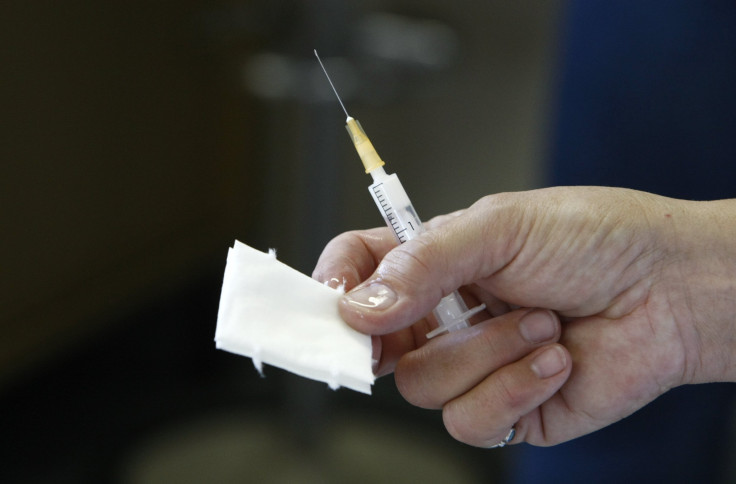Testosterone Shots and Gel May Reduce Heart Attack Risk In Men With Coronary Artery Disease

Last year, the Food and Drug Administration required manufacturers of testosterone products to add new label information warning of a possible increased risk of heart attacks and strokes. A new study suggests this may be both unnecessary and unhealthy for some men. Testosterone therapy or T therapy helped men with preexisting coronary artery disease reduce their risks of strokes, heart attacks, and even death.
In fact, the men who did not receive testosterone as part of their treatment were 80 percent more likely to suffer an adverse event, such as a heart attack, than those taking T.
Testosterone is a sex hormone that is commonly thought to regulate sex drive, bone mass, fat distribution, muscle mass and strength, and to be responsible for the production of sperm and red blood cells in men. As men age, they generally make less testosterone at a rate of about 1 to 2 percent per year. A man in his 70s may have half the testosterone he had at age 20.
Though this may be normal, some men feel the effects more strongly than others. Low testosterone levels may contribute to depression, decreased bone density, increased body fat, insomnia, and diminished sexual desire. For these reasons, some doctors prescribe T to their patients with only age-related hormone decline. While prescription testosterone is an FDA-approved therapy, the agency only sanctions it for men who have low T levels due to disorders causing hypogonadism, where the body doesn’t produce enough of the hormone. The benefits and safety of using T to treat age-related low levels have not been established, says the FDA.
However, a previous Intermountain Medical Center study explored the effects of supplemental T in men with no prior history of heart disease and found it did not increase the risk of stroke or heart attack. The current study, then, investigated possible risks in using T therapy among men with heart disease.
Specifically, the researchers worked with 755 patients, between the ages of 58 and 78, at Intermountain Healthcare hospitals. All the men suffered from severe coronary artery disease. The researchers split the participants into three separate groups and gave each group either a low dose of testosterone (administered by injection or gel), a high dose of testosterone, or none at all.
After one year, 64 patients who were not taking testosterone supplements suffered a major adverse cardiovascular event, the researchers report. By comparison, only 12 of the men taking medium doses of testosterone and nine taking high doses suffered a similar major event. After three years, 125 non-testosterone-therapy patients suffered major events, while only 38 medium-dose and 22 high-dose patients did.
As a small, observational study, it does not provide enough scientific evidence for the FDA to change its guidelines. Still, the results indicate hormone replacement may protect low T men with coronary artery disease. In light of this, the researchers say a randomized clinical trial is needed to either confirm or refute these new results.
Source: Muhlestein B, Bair TL, May HL, Le V, Lappé DL, Anderson JL. Clinical Effects of Testosterone Supplementation Among Hypo-androgenic Men with Preexisting Severe Coronary Artery Disease: The Intermountain Heart Collaborative Study. American College of Cardiology's 65th Annual Scientific Session. 2016.



























